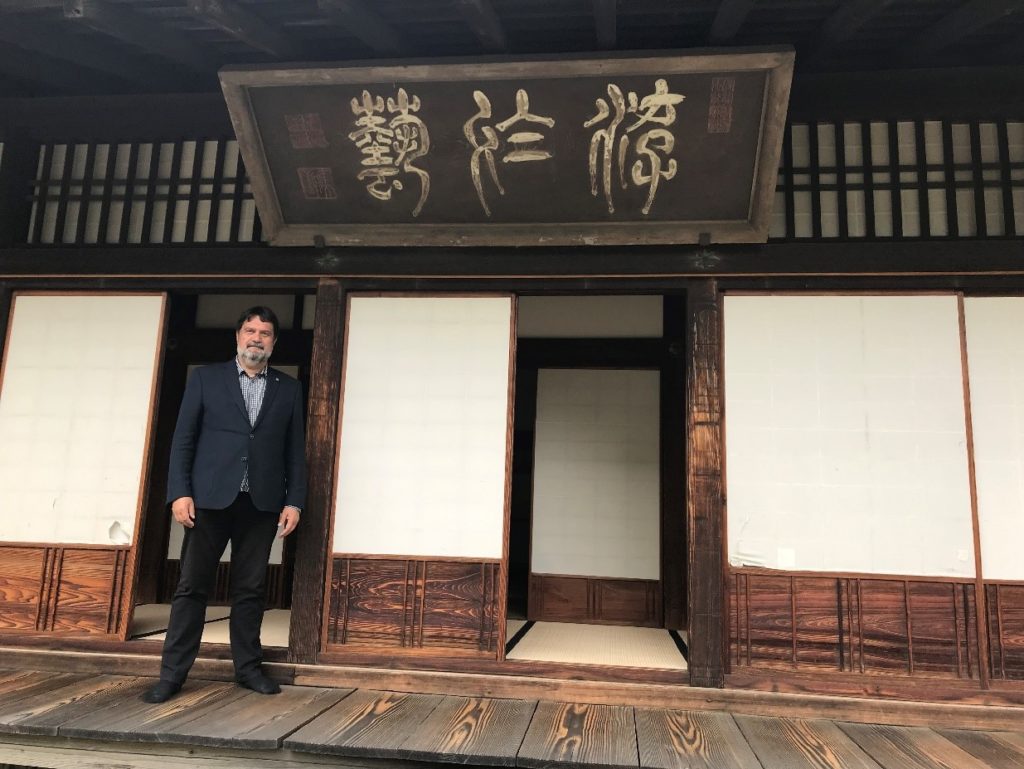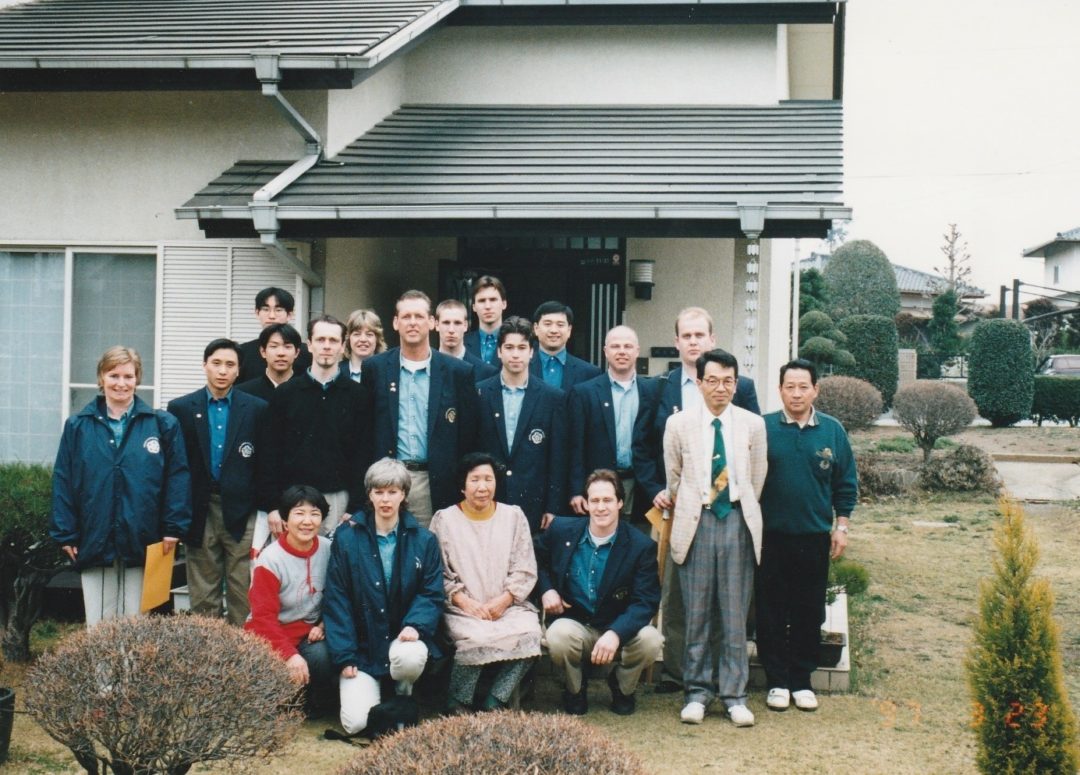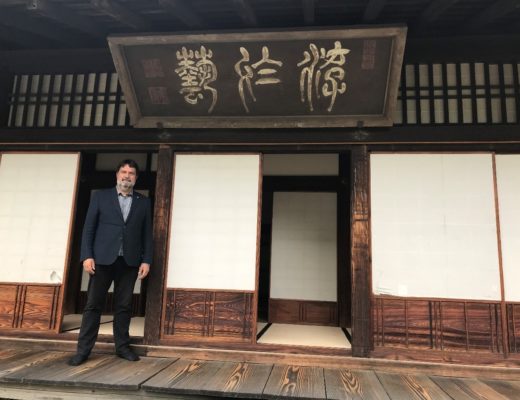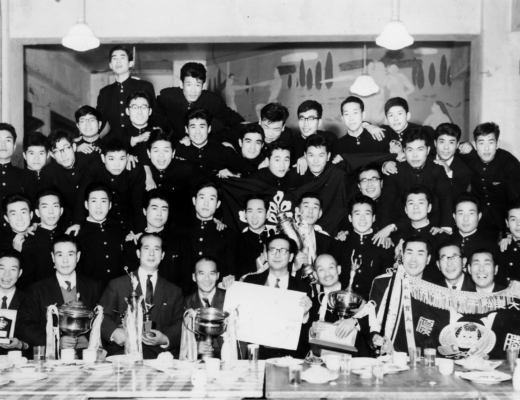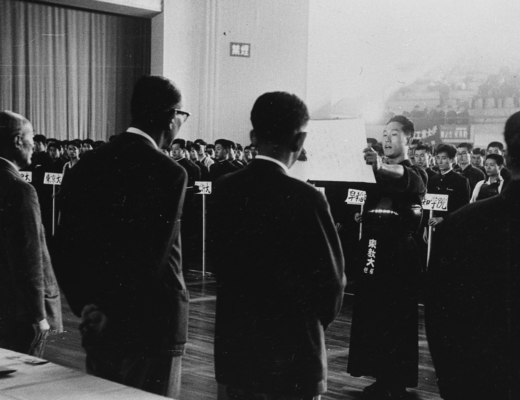This article was contributed to us by Louis Vitalis Sensei, the director of Museido Dojo in Amsterdam, the Netherlands. Louis Vitalis has fought many times in the European and World Championships and has been a well received referee at the same tournaments. This is about Louis Vitalis’ and Yolanda Dekker’s view of martial arts.
Profile
Louis Vitalis, 60 years old.
Present grades: Kendo Kyoshi 7th Dan, Iaido Kyoshi 7th dan, Jodo Kyoshi 7th dan.
He started Kendo and Iaido in 1976 in Amsterdam, The Netherlands. First received Kendo teaching by Edo Kokichi Sensei in 1977 in Tokyo and continues to receive teaching from both Edo Kokichi Sensei and Iijima Akira Sensei. Practiced Kendo at Nippon Express Kendo Club in Japan from 1999 till 2002. Received teaching in Iaido and Jodo by Ishido Shizufumi Sensei from 1983 till present in both Europe and Japan.
Dutch Kendo Champion in 1980 and 1981. Iijima Cup Kendo Champion 1990. Fighting Spirit at the World Kendo Championship in 1979 and at the European Kendo Championships in 1983 and 1984. Referee at many finals of World Kendo Championships between 1991 in Toronto and 2015 in Tokyo.
Eishinkan Taikai Jodo Champion in various divisions between 1984 and 1986. Referee at many finals of European Iaido and Jodo Championships.
Jolanda Dekker, 61 years old.
Present Grades: Kendo Renshi 6 dan, Iaido 4 dan, Jodo 5 dan.
Started Kendo and Iaido in 1979 in Amsterdam. Her first Kendo teachings were received from Edo Kokichi Sensei in 1981 at Kanazawa university. Received Kendo teaching from Edo Kokichi Sensei and Iijima Akira Sensei during various visits to Japan. Practiced Kendo at Nippon Express Kendo Club in Japan from 1999 till 2002.
Received teaching of Iaido and Jodo by Ishido Shizufumi Sensei from 1983 till 2010 in both Europe and Japan.
More than 30 gold, silver, bronze, Fighting Spirit medals divided over the three disciplines. First official Female European Kendo Champion in 1989. Two times Fighting Spirit award and best 8 placements at the World Kendo Championship. Also won medals at Kendo Taikai in Japan (Ibaraki Katei Fujin Taikai, Kawasaki Kendo Taikai).
Jolanda and Louis’ Budo Concept
We have been practicing Kendo, Iaido and Jodo for 45 years. We have been doing it together as a couple but ten years ago Jolanda suffered a stroke so she could not continue practicing Budo.
She is continuing to show her face at Tournaments and Seminars. We have made a simple overview of our Ideas concerning Budo.
What is important as a Budoka?
1. First and foremost, gratitude and respect for your “Onshi”. (Onshi is the teacher to whom you owe special gratitude for receiving his teaching).
In the case of Jo and Louis, our long time Onshi are Edo Sensei (Kendo & Jodo), Iijima Sensei (Kendo) and Ishido Sensei (Iaido & Jodo). Thanks to them we have been very successful in Tournaments and in passing our dangrades.
2. It is important to create Successors. We have learnt so much from our teachers, so only winning tournaments and passing dangrades by ourselves would be meaningless if we had no Successors. Without Successors Budo would have no future.
Fortunately, in all three disciplines Louis’ students have achieved winning at European Championships and passing of high grades such as 8 dan and 7 dan.
3. By practicing Budo diligently one can obtain a strong body and mental spirit.
If you are faced with a severe illness, the [Fighting Spirit] that you have learned from Budo can be very important. The things that you learn from Budo are not only important in the training in the Dojo or Matches in a Tournament, but are also useful in daily life.
By practicing Budo you will be able to develop Budo related Friendships which cross borders.
By practicing Budo you will develop Concentration and Fighting Spirit, and this will be useful for your work as well. In the case of Louis, thanks to Budo he made a career as a Pan European General Manager in a large Japanese firm (Nippon Express).
By practicing Budo you will naturally develop Etiquette and Respect, and this will lead to the development of meaningful and pleasant human relations with people, also outside Budo.
4. Louis Vitalis’ Budo Motto
In the Kodokan (old Samurai School) in Mito City, Ibaraki Prefecture there is a sign with “Gei Ni Asobu”.
Gei means “Art”, as in “martial arts”. It stands for Budo. Asobu means to enjoy.
There are all kinds of theories about this, but in our case it means to keep enjoying what you do. Without this it will be impossible to keep practicing Budo for a long time.
